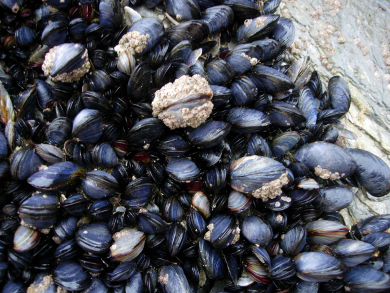Mussels secrete sticky molecules known as mussel foot proteins o adhere to rocks under water flow. Inspired by the adhesive properties of these proteins, Timothy K. Lu, Massachusetts Institute of Technology (MIT), Boston, USA, and colleagues developed new waterproof adhesives.
The researchers engineered bacteria to produce a hybrid molecule constituted of two components. The first one, mussel foot protein 3 or 5, provided the hybrid molecule with adhesive properties. The second one, a self-assembling bacterial protein called curli fiber, provided the hybrid molecule the ability to self-assemble into complex meshes. By combining the features of the two proteins, the team obtained a new adhesive molecule which self-assembles into fibrous dense meshes.
These new meshes possess a flexible structure and strongly bind to both wet and dry surfaces such as silica, gold, and polystyrene. Remarkably, the underwater adhesive properties of the new material were superior to those displayed by mussel foot proteins. The new material maybe be useful for naval or medical applications.
- Strong underwater adhesives made by self-assembling multi-protein nanofibres
Chao Zhong, Thomas Gurry, Allen A. Cheng, Jordan Downey, Zhengtao Deng, Collin M. Stultz, Timothy K. Lu
Nat. Nanotechnol. 2014.
DOI: 10.1038/nnano.2014.199




